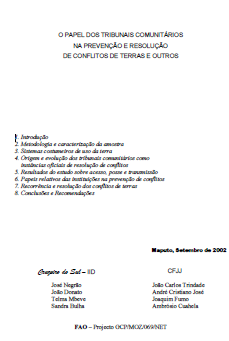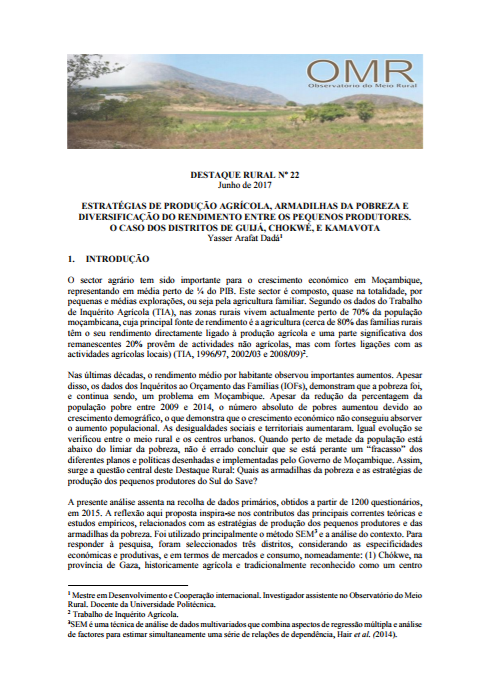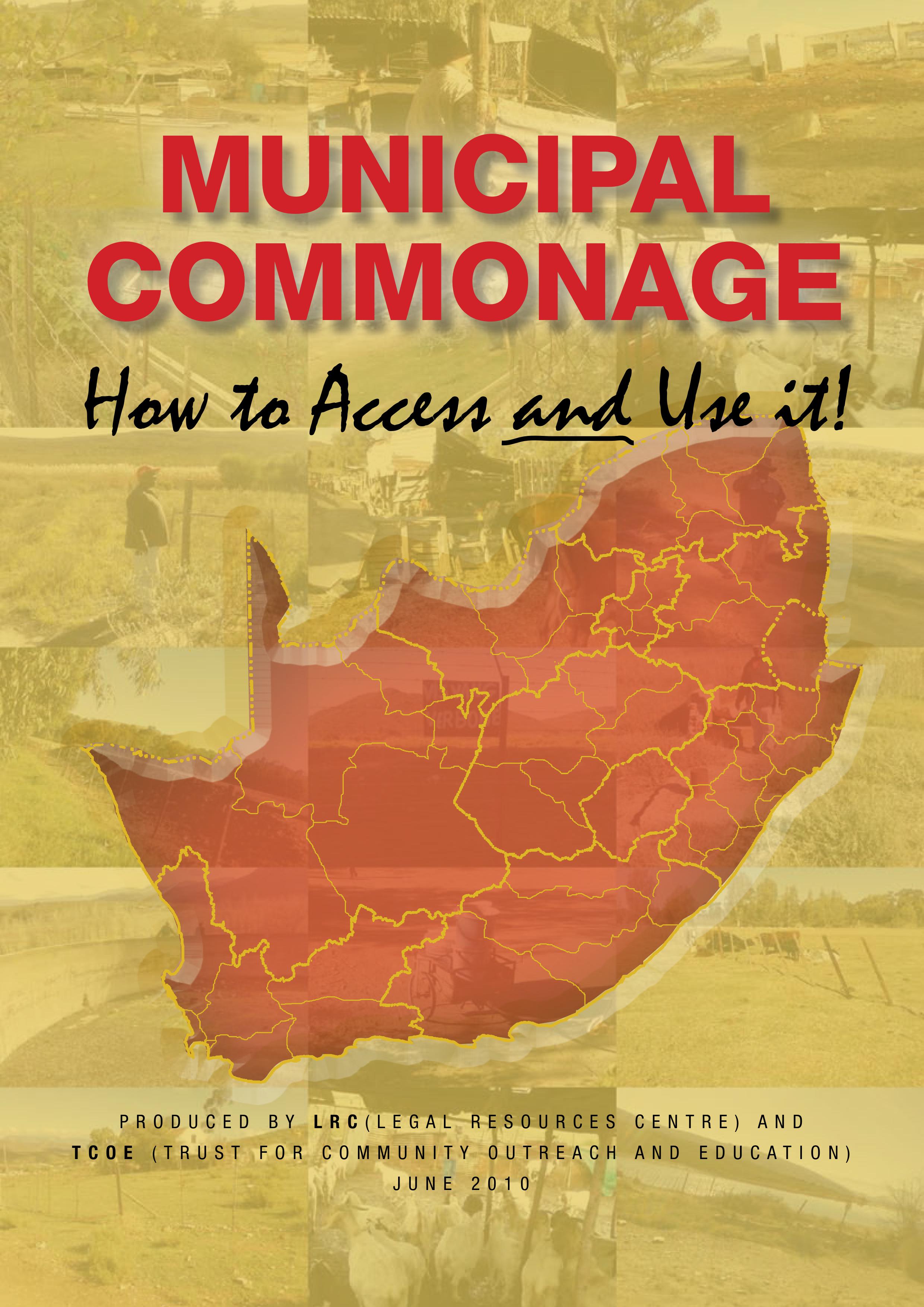O papel dos tribunais comunitários na prevenção e resolução de conflitos de terras e outros
O presente relatório inscreve-se nas actividades desenvolvidas no âmbito do Projecto GCP/MOZ/069/NET, estabelecido entre a Organização das Nações Unidas para a Agricultura e a Alimentação (FAO) e o Governo da República de Moçambique, cujo objectivo geral é o de apoiar a implementação de três diplomas legais recentes e inovadores no ordenamento jurídico moçambicano: a Lei de Terras, a Lei do Ambiente e a Lei das Florestas e Fauna Bravia.
Este objectivo geral desdobra-se em quatro objectivos específicos, assim escalonados:









